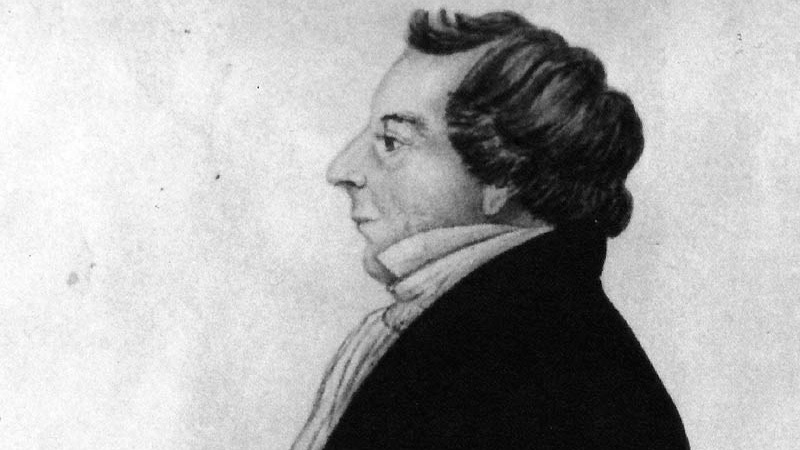Humanistic Mormonism
Lincoln Cannon
17 July 2012 (updated 3 January 2026)

Several friends have asked for my opinion on Humanistic Mormonism, consequent to hearing about the Society for Humanistic Mormonism. As most of my readers know, I’m one of the founders of the Mormon Transhumanist Association and currently serving as president of that organization. So it won’t come as a surprise, given that Transhumanism has much in common with Humanism, that there’s much I like about Humanistic Mormonism. There are, however, a few areas where my views differ from those of some Humanists.
To illustrate, below are my perspectives on “16 Questions About Humanistic Mormonism.” I present in quotes the answer provided by the Society for Humanistic Mormonism, followed by my own thoughts.
Question One
“What is Humanistic Mormonism?
“Humanistic Mormonism is a denomination within Mormonism. It combines attachment to Mormon identity and culture with a human centered approach to life. It defines Mormonism as the historical and cultural experience of the Mormon people. Humanistic Mormonism affirms that people are independent of supernatural authority and responsible for themselves and their behavior.”
I don’t think it’s accurate to characterize Humanistic Mormonism as a denomination. That suggests that it’s an ecclesiastical entity like the LDS Church and distinct from it. There are many Humanistic Mormons that are also members of the LDS Church. We should characterize Humanistic Mormonism as an interpretation rather than as a denomination, even if a particular organization for Humanistic Mormons establishes itself as a denomination.
Personally, I’m a Humanistic Mormon only to the extent that Transhumanism is a form of Humanism. I reject forms of Humanism that assess humanity in any static manner or as anything like the culmination or climax of evolution. I don’t think humans should be the focus of human life any more (or less) than dogs should be the focus of dog life.
We should aim at radical flourishing in creativity and compassion generally, according to and in reconciliation of our varying capacities and desires. That aim should always point beyond our present capacities and desires. As such, it is, for humans, a posthuman aim, and God always has been and is at least a posthuman projection. Thus, our focus should be on God, discovered to the extent it already exists, created to the extent it doesn’t yet exist.
I do agree, however, that this God should not be understood in terms of supernaturalism. This God is a natural God that becomes God through natural means, suggesting how we might do the same.
Question Two
“How can you be Mormon if you don’t believe in God?
“Membership in the Mormon people is not a function of belief it is a function of identification, connection, and history.”
I believe in God. Or more accurately, I posit God, as an article of faith. While I reject supernaturalism, I yet see in many supernatural interpretations of God extents of compatibility with my own views. So I try to emphasize those compatibilities as points of integration for improving understanding and persuasion.
Question Three
“Why call what you do Mormonism?
“Mormonism is the evolving culture of the Mormon people. There is no single way to be Mormon. What Mormons do is called Mormonism. What Humanistic Mormons do as Mormons is Mormonism. Pluralism in Mormon life enriches Mormonism and enables a more inclusive and enriched Mormon community.”
I generally agree with the pluralistic approach to Mormonism. But I also advocate the expression of disagreement among Mormons, even regarding assessments of Mormon identity. In particular, I challenge the identity of self-described Mormons that reject the doctrine of theosis, which is the heart of Mormonism, so far as I’m concerned.
Question Four
“Why are you a separate movement in Mormonism?
“What distinguishes Humanistic Movements from other movements that identify humanistic themes in Mormonism is our resolve to create a consistency between our philosophy and our liturgy (what we believe and what we say and do). Humanistic Mormon celebrations, ceremonies, and commemorations use human-centered non-theistic language. The words we say and the songs we sing follow this guideline. We call this principle integrity and it is fundamental to our identity as Humanistic Mormons.”
I disagree with efforts to separate religious language from liturgy. Doing so will only weaken the liturgy. However, I do see value in efforts to communicate ideas in both religious and secular language, and providing means of interpreting and moving between them with consistency and honesty.
Question Five
“Is Humanistic Mormonism a religion?
“According to the dictionary a religion is a set of beliefs to which people hold fast. Humanistic Mormonism is a religion using that definition. Humanistic Mormonism falls into the category of a cultural religion, based on history and evolving values guided by science, reason and compassion. Humanistic Mormonism is also a religion in its structure, its congregational model, and school for children, adult education, and provider of life cycle ceremonies all follow the religious model.
“However unlike traditional religion, here we have freedom of thought and freedom of speech. Whether one believes in God or no God (or whether one takes an agnostic view point), or whether one sees Humanistic Mormonism as their personal secular view point or whether they see Humanistic Mormonism as their personal religious view point: All groups are welcome and can be in good standing as Humanistic Mormons.
“That is to say Humanistic Mormonism has no creed other than a commitment to reason, science, compassion, free inquiry, freedom of speech, and freedom of thought.”
If Humanistic Mormonism is committed only to secular categories, where is the Mormonism? I suspect there’s actually more going on than is articulated in the enumeration of commitments. It seems there’s at least a commitment to Mormon identity. And that must have some connotations, such as those described in previous sections, to which Humanistic Mormonism is equally committed.
Question Six
“If you are not religious in a traditional sense, why have chaplains?
“A Humanistic Mormon Chaplain is someone who is knowledgeable about Mormon history and ceremony. A Humanistic Mormon Chaplain provides pastoral care based on Humanist principles. The Humanistic Mormon Chaplain gives information, advice, and consultation about existential questions.”
This sounds interesting.
Question Seven
“Isn’t the Mormon religion (orthodoxy)/Prophets responsible for what Mormonism is?
“No one owns ‘Mormonism’ it belongs to all of humanity and to all types of Mormons and even belongs to Post-Mormons or Ex-Mormons who have a right to say what they think Mormonism should become or what they think Mormonism is. There are many ways of interpreting what Mormonism is, no one way is the right way. It belongs to world culture and world society as well as the many differing types of Mormons to decide what ‘Mormonism’ is.
“One thing we are sure of Mormonism will continue to evolve. Humanistic Mormonism is just one step in that evolution, it is sure to keep evolving in the future.”
I agree that Mormonism is evolving and should continue to do so. A case for this can be made even for those of orthodox inclination, by appealing to the notion from the Articles of Faith that many great and important things are yet to be revealed.
Question Eight
“Without God how can there be ethics?
“The foundation of ethics is human dignity, human survival, and human happiness. The foundation of ethics is not God. Ethical behavior consists of relationships between people. Some people behave well without believing in God and some people who believe in God do not behave ethically.”
I agree that ethics arise from relations, although I disagree that those relations need be human-centered. Depending on how “God” is understood, God may very well be essential to morality. If God is, in part, radical flourishing in compassion, then God has everything to do with ethics.
Question Nine
“If you don’t pray, what do you do and who do you worship?
“We can use poetry and prose to express that connection. We can sing songs and we can meditate. We use materials that encourage reflection and meditation. And some Humanistic Mormons choose to pray. Worship is an ambiguous and loaded word. What does it mean ‘to worship’ as a Humanistic Mormon? If we do pray, we address ourselves in our uncertainty: ‘To Whom It May Concern.’
“So whom or what would we worship? Probably many different things. But perhaps with a shared reverence and gratitude. So we still use the word ‘worship’ as an indication of our wonder and awe; and our recognition of the worth of the world around us, the life we share, and the beauty and mystery of being. For that is what piques our curiosity, inspires our imagination, warms our spirits, shapes our character, and contributes to our belonging and becoming. To worship is to celebrate life, in all its peculiarities.”
I agree that worship should be understood more broadly than it’s understood by many theists. However, a worship that focuses on that which we are already, instead of our posthuman potential (God), will almost certainly prove less transformative.
Question Ten
“Can someone convert to Humanistic Mormonism?
“We define a Mormon as someone who identifies with the history, culture and fate of the Mormon people. If a person would like to participate in the Mormon experience, they can adopt Mormonism and a Humanistic Mormon community or the Society for Humanistic Mormonism can adopt the person wanting to be part of the Humanistic Mormon family. It’s a mutual experience.
“Because being Mormon is defined as the historical and cultural experience of the Mormon people an individual does not have to ‘give up’ who they are to add Mormon identity to their self-definition. Thus one can choose to remain a member of another religion and still join Humanistic Mormonism or hold secular, agnostic, or atheist views and still join Humanistic Mormonism.
“Whether one considers themselves a Post-Mormon, a Liberal Mormon, an Orthodox Mormon, or even an Ex-Mormon, all are welcome in Humanistic Mormonism and perhaps especially Ex-Mormons or Post-Mormons. We mean not to place any limits on how one’s identity as a ‘Mormon’ is defined but nor do we mean to exclude you regardless of where you define yourself. Indeed Humanistic Mormonism is a big tent and we mean to keep it that way so we can all learn and grow together in happiness, peace, love and understanding with our various backgrounds.
“Expanding what it means to be a ‘Mormon’ allows us to advance one of the core principles of Humanistic Mormonism: freedom of thought and freedom of belief or disbelief. No one will be excommunicated in this Society on the basis of belief or non-belief and all are welcome to take part in the joys of Humanistic Mormonism.”
I generally value a broad approach to Mormonism, although I don’t see value in emphasizing former Mormons (ex-Mormons or post-Mormons) above or even equal to Mormons.
Question Eleven
“If you are Humanists why bother with Mormonism at all?
“Being Mormon is part of our identity. Indeed this is true of most traditional religions we are typically born into a faith that we had little choice or no choice in being part of. Indeed we were born into a faith and a culture and this becomes part of our identity. For those that converted to Mormonism later in life this also becomes part of our identity.
“When we added Humanism on to our identity we took up that identity as well. Thus the combination of Mormonism and Humanism as our identities is the natural course and evolution of our Humanistic Mormon identities. We are all curious to know who we are, to discover our roots and establish connections, to learn and to celebrate. Culture adds interest to our lives, whether it be music, literature, art, dance, or food.”
I like this explanation of why the Society for Humanistic Mormonism cares about both Mormonism and Humanism.
Question Twelve
“Isn’t all Mormonism humanistic?
“Some of Mormonism is humanistic, although not all of it is. The confusion is usually around the differences between humanitarianism and humanism. Humanism is the reliance on people to solve human problems. Humanism includes humanitarianism, which is the act of promoting human welfare and social reform.”
We can make a stronger argument that all Mormonism is Humanism, or more particularly that all Mormonism is Transhumanism. Even to the extent that Mormons appeal to and rely on the grace of God, that God is generally understood to be a person like whom humans can and should become.
Question Thirteen
“While Humanistic Mormonism is compatible with Humanism what are its views on Transhumanism?
“The Society for Humanistic Mormonism endorses the Transhumanist Declaration of Humanity+. Indeed we consider Transhumanist philosophy to be the most advanced and progressive form of Humanism that can be expressed. We therefore support and advance both Humanism and Transhumanism philosophy within this Society as the core principles of belief.
“Of course members are free to either call themselves Humanists or Transhumanists as our tent is big enough and accommodating to both identities. This video shows the overall Transhumanist goal of 2045, which this Society will do everything to support.”
Although not all Humanists would agree that Transhumanism is the most advanced form of Humanism, I certainly share the opinion that all Mormon Humanists should be Transhumanists. I also appreciate that the Society for Humanistic Mormonism endorses Transhumanism. And of course I invite their members to join the Mormon Transhumanist Association.
It’s worth noting that not all Transhumanists are Singularitarians, and thus do not necessarily share anticipation of the timelines or goals expressed by Singularitarians. I explain more of my thoughts about Singularitarianism and its relation to Transhumanism in these articles: “Technological Singularity as Religious Ideology” and “The Singularity merits understanding, but doesn’t require it.”
Question Fourteen
“The Society for Humanistic Mormonism sounds rather accepting as a religion. Does it like Unitarian Universalism accept other religious / philosophical beliefs along with a Mormon Humanist identity or Mormon background in its membership?
“Humanistic Mormonism accepts Jewish, Muslim, Hindu, Buddhist, Christian, natural theist, atheist, agnostic, absurdist, deist, pandeist, pantheist, pagan, transhumanist, Taoist, and other beliefs. Or no particular theological label to their beliefs.
“Individuals within Humanistic Mormonism must search for themselves as individuals what to believe and this Society will not enforce any theological beliefs or creeds. Thus the traditions and spiritual practices of the Native Americans, Neopaganism, Christianity, Zen Buddhism, Judaism, Islam, Pantheism, Unitarian Universalism, Pandeism, and Deism are all welcome here.
“Whether the Humanistic Mormon decides the path that is earth-centered, agnostic, theistic, secular humanist, humanist, transhumanist, atheistic, Buddhist, or Christian all are welcome in this Society. Thus Humanistic Mormonism not only accepts any ‘Mormon’ identity we are open to any religious or non-religious identity for ‘Mormonism’ accepts truth and the search for meaning wherever it may be found among humanity.”
As mentioned previously, I generally value a broad approach to Mormonism. However, I suspect the Society for Humanistic Mormonism will undermine its own efforts if it doesn’t do more to establish unique identity boundaries apart from its name.
Question Fifteen
“What is your position on gay or lesbian marriages or women in leadership positions in the Society?
“The Society for Humanistic Mormonism accepts full marriage equality between LGBT couples and does not consider LGBT sexual practices to be wrong. Women likewise have full equality in the Society to serve in the highest leadership positions as with the men.”
I appreciate these statements against sexism and discrimination based on sexual orientation. However, LGBT sexual practices can be wrong for the same reasons that other sexual practices can be wrong: when they’re engaged irresponsibly or oppressively. I advocate consensual and committed sexual relations for their beneficial psychosocial consequences. And I consider marriage to be an important reinforcer of consensual and committed sexual relations.
Question Sixteen
“Are there are other Humanist manifestos/documents either religious or secular that the Society for Humanistic Mormonism endorses and if so what are they?
“We do they are as follows: Humanist Manifesto I (1933), Humanist Manifesto II (1973), Secular Humanist Declaration (1980), A Declaration of Interdependence: A New Global Ethics (1988), Humanist Manifesto 2000 (2000), Neo-Humanist Statement of Secular Principles and Values (2010), Mormon Transhumanist Affirmation (Mormon Transhumanist Association), International Manifesto of the “2045” Strategic Social Initiative (2011), Transhumanist Declaration (1998), Transhumanist Arts Statement (1982), Transhuman Manifesto (1983), Seven Elements of Religious Humanism (Humanist Foundation: A Division of the Church of Humanism), Unitarian Universalist Seven Principles and Purposes, International Humanist and Ethical Union (Minimum Statement), The Universal Declaration of Human Rights”
There is much that I appreciate and agree with in these statements. And I wish the Society for Humanistic Mormonism well in their efforts to advocate the many strengths of Humanism and to reconcile those strengths with their Mormon identity. I invite them to continue serious consideration of the theological implications of persistent change toward radical flourishing in creativity and compassion, particularly when empowered by religion and technology.


